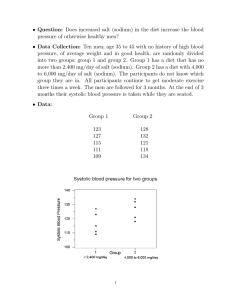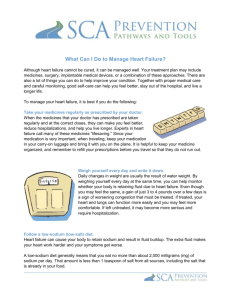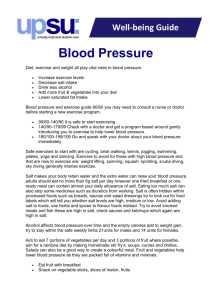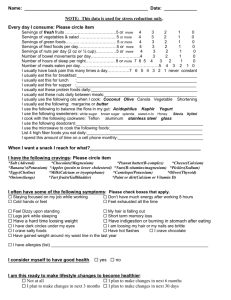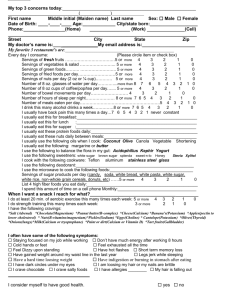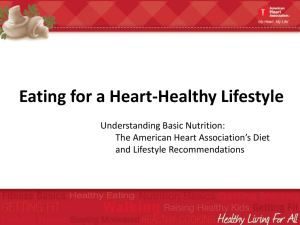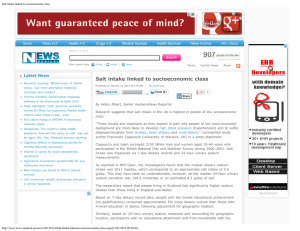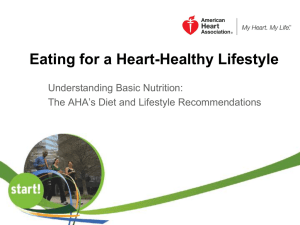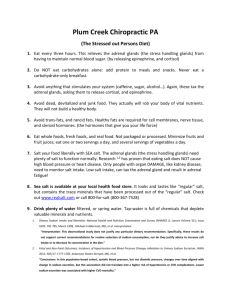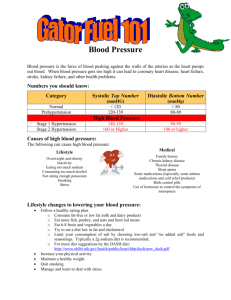Achieving a Healthy Blood Pressure
advertisement
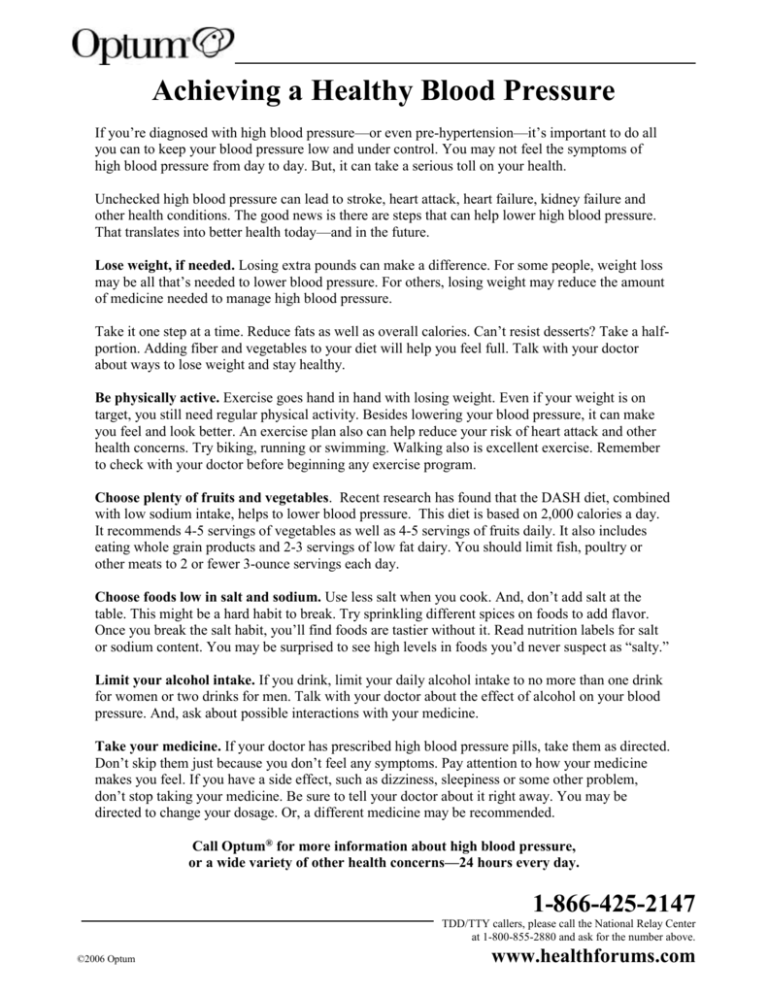
Achieving a Healthy Blood Pressure If you’re diagnosed with high blood pressure—or even pre-hypertension—it’s important to do all you can to keep your blood pressure low and under control. You may not feel the symptoms of high blood pressure from day to day. But, it can take a serious toll on your health. Unchecked high blood pressure can lead to stroke, heart attack, heart failure, kidney failure and other health conditions. The good news is there are steps that can help lower high blood pressure. That translates into better health today—and in the future. Lose weight, if needed. Losing extra pounds can make a difference. For some people, weight loss may be all that’s needed to lower blood pressure. For others, losing weight may reduce the amount of medicine needed to manage high blood pressure. Take it one step at a time. Reduce fats as well as overall calories. Can’t resist desserts? Take a halfportion. Adding fiber and vegetables to your diet will help you feel full. Talk with your doctor about ways to lose weight and stay healthy. Be physically active. Exercise goes hand in hand with losing weight. Even if your weight is on target, you still need regular physical activity. Besides lowering your blood pressure, it can make you feel and look better. An exercise plan also can help reduce your risk of heart attack and other health concerns. Try biking, running or swimming. Walking also is excellent exercise. Remember to check with your doctor before beginning any exercise program. Choose plenty of fruits and vegetables. Recent research has found that the DASH diet, combined with low sodium intake, helps to lower blood pressure. This diet is based on 2,000 calories a day. It recommends 4-5 servings of vegetables as well as 4-5 servings of fruits daily. It also includes eating whole grain products and 2-3 servings of low fat dairy. You should limit fish, poultry or other meats to 2 or fewer 3-ounce servings each day. Choose foods low in salt and sodium. Use less salt when you cook. And, don’t add salt at the table. This might be a hard habit to break. Try sprinkling different spices on foods to add flavor. Once you break the salt habit, you’ll find foods are tastier without it. Read nutrition labels for salt or sodium content. You may be surprised to see high levels in foods you’d never suspect as “salty.” Limit your alcohol intake. If you drink, limit your daily alcohol intake to no more than one drink for women or two drinks for men. Talk with your doctor about the effect of alcohol on your blood pressure. And, ask about possible interactions with your medicine. Take your medicine. If your doctor has prescribed high blood pressure pills, take them as directed. Don’t skip them just because you don’t feel any symptoms. Pay attention to how your medicine makes you feel. If you have a side effect, such as dizziness, sleepiness or some other problem, don’t stop taking your medicine. Be sure to tell your doctor about it right away. You may be directed to change your dosage. Or, a different medicine may be recommended. Call Optum® for more information about high blood pressure, or a wide variety of other health concerns—24 hours every day. 1-866-425-2147 TDD/TTY callers, please call the National Relay Center at 1-800-855-2880 and ask for the number above. ©2006 Optum www.healthforums.com
